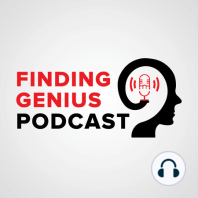38 min listen

Understanding Biological Meaning, Biological Versus Artificial Intelligence, and Evolutionary Agency—Victoria N. Alexander—Dactyl Foundation, Author o…
Understanding Biological Meaning, Biological Versus Artificial Intelligence, and Evolutionary Agency—Victoria N. Alexander—Dactyl Foundation, Author o…
ratings:
Length:
50 minutes
Released:
Mar 15, 2019
Format:
Podcast episode
Description
“In biosemiotics, we say that the human ability to interpret signs—which is the ability to think really, to think creatively and adaptively and learn new things—didn’t just emerge with animals; rudimentary sign reading emerged in the simplest forms of life with single-celled organisms,” says Victoria Alexander, biosemiotician, Director of Dactyl Foundation, Fulbright specialist, and author of The Biologist's Mistress: Rethinking Self-Organization in Art, Literature, and Nature. What’s biosemiotics, you ask? Alexander explains biosemiotics as the study of sign use in biological systems, where signs can be almost anything in the environment—a word, a pictogram, a smell, a sound, or a chemical gradient. Signs are intelligence; we can train a computer to read signs, but can we train a computer to interpret signs that depend on the context within which they exist? Answering this question is one aspect of the investigation into the differences between biological and artificial intelligence, which is what Alexander’s work is currently focused on. She explains that biological cells don’t just react to the chemistry around them, but interpret and respond to it. She goes on to explain how this underlies a system of interpretation that's related to random change in a way that’s changing the direction of evolution. In this way, Alexander argues that it is within the organism that evolutionary agency is found and explained, rather than in the mechanisms of randomness and competition. Alexander offers an exciting and informative conversation that touches on a variety of topics, including metabolic pathways, the association of properties and the placebo effect, the idea that dysfunctional semiotic habits are the cause of some syndromes and conditions, cell differentiation, self-organization in nature, and butterfly wing pattern development. Press play to hear the full conversation.
Released:
Mar 15, 2019
Format:
Podcast episode
Titles in the series (100)
BlockChainEDU – Interview with Dean Masley of BlockChainEDU.org: Today’s guest is Dean Masley of BlockChainEDU.org BlockChainEDU.org is a community of students & alumni across the world. They are creating bitcoin & block-chain clubs in their universities. In this interview,… by Finding Genius Podcast